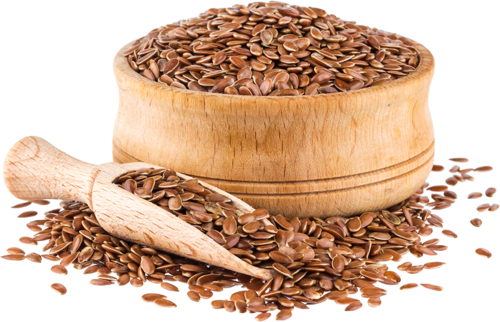The Power of Fenugreek

Fenugreek is one of the most popular Ayurvedic herbs you’ll find. You can identify the plant as a small one (2-3 feet tall) with green leaves, white flowers, and a pod containing smallish mustard-yellow seeds. Its plant parts hold an array of benefits to human beings. For instance, alternative Indian and Chinese medicine forms prize this highly in treating various diseases, such as skin conditions. Secondly, it works well as a thickening agent. Hence, you can find this in many soaps and shampoos. Thirdly, it packs in a flavourful punch which makes it a common ingredient in Indian cooking. As a result, you’ll find fenugreek seeds and powder on the shelves of most Indian kitchens.
Here are some of the benefits this spice offers to your bodily systems.
Nutrition Levels
Just one tablespoon (11.1 grams) of this spice packs in optimal amounts of fat (1 gram), carbs (6 grams), protein (3 grams), and fiber (3 grams). Further, it contains micronutrients including iron, manganese, and magnesium (20%, 7%, and 5% of your daily needs respectively). Best of all, it carries just 35 calories. Hence, this makes it an ideal addition to any weight loss diet in the right quantity. Furthermore, it is important to note that fenugreek works best in combination with other spices for flavor and nutrition.
Improves Breast Milk Production in Women
Breast milk is the sole nutritious source for newborn infants for at least 6-9 months. Thus, timely and adequate breastmilk production is essential to feeding children. However, many mothers may not be able to meet this need sufficiently. And that’s where fenugreek helps – it acts as a safe and natural alternative to over-the-counter drugs.
Various studies prove this too. First, a two-week-long study finds that a herbal tea concoction with fenugreek seeds can boost breastmilk production. Similarly, another study finds that subjects drinking fenugreek tea produced more breastmilk than those taking a placebo or nothing. It’s important to note that these studies used fenugreek herbal tea rather than supplements. Anyways, supplement use is unlikely to have very different effects. Nevertheless, it’s important to consult a doctor or midwife if low breastmilk production is a prolonged problem.
Improves Testosterone Production in Men
Men often use fenugreek supplements to raise their testosterone levels. This can increase sports performance and improve libido levels too. First, a two-month study among 30 college men proves this. While all of them underwent 30 weightlifting sessions per week, only 15 received fenugreek supplements. Results? The group taking supplements had an increase in testosterone levels with a 2% body fat reduction. In contrast, the others saw a decline in testosterone levels.
Secondly, another two and a half month-long study provided 30 men with fenugreek extract (600 grams). In response, experts found that participants had both better strength and sexual functioning. However, more studies can help to confirm these findings.
Controls Diabetes
Diabetes is a common metabolic ailment, typically a result of high blood sugar levels. Here’s where Ayurvedic herbs and spices come in. Fenugreek in particular can affect both type 1 and 2 diabetes, as well as raise general carb tolerance. In fact, this works for non-diabetic patients too. For instance, one study among type 1 diabetic patients taking fenugreek seed powder (50 grams) after meals shows that it can stabilize blood sugar and LDL cholesterol levels. Similarly, another study among non-diabetic patients shows a reduction in blood sugar levels by 13.4%, just four hours post intake.
Various animal studies report similar effects. For instance, one example shows better glucose tolerance among mice fed a high-fat diet with fenugreek seed supplements (2%) over a four-month course than the control group. Interestingly, there was no change in glucose tolerance levels among the low-fat diet group. In fact, the authors of the study go on to say that 4-day voluntary spinning wheel exercises were more helpful than fenugreek for this purpose.
There are multiple reasons for such anti-diabetic properties of fenugreek. Firstly, it can lower intestinal glucose absorption levels. Secondly, it can lower the gastric emptying process. Thirdly, it can improve rates of insulin sensitivity which prevents a spike in blood sugar levels. Fourthly, and finally, it lowers the amount of lipid-binding proteins. As a result, it lowers cholesterol and fat levels as well.
Weight Loss
Fenugreek can result in appetite suppression and fullness. This is mainly due to its high fiber content. Thus, many people go for fenugreek fiber extract powders to prevent overeating, thus enabling weight loss. For instance, one study among nine female overweight Korean participants shows that fenugreek tea (in contrast to fennel tea or regular tea) can lead to fullness.
Pain Relief
Various traditional healing systems of medicine use fenugreek as an all-natural and powerful remedy to pain. According to researchers, this may be because of the alkaloid compounds which block sensory channels leading to pain perception. For instance, one study of 51 women with period pain shows that fenugreek seed powder (2x a day for 2 months, during the first 3 days of their period) can cause shorter pain duration with fewer symptoms.
For best effects, try drinking hot fenugreek tea during periods. This creates a soothing effect and can ease cramps as well.
Risk Factors
Fenugreek is typically a safe herb for persons of all ages and demographic groups. However, it may come with certain side effects. For instance, it can cause a stomach upset, dizziness, headaches, and may also lend a maple-like odor to urine, sweat, or breast milk. Further, it may also be allergic in some cases. Although this is rare, it definitely helps to check with a doctor if you experience any worrisome symptoms.
Other risk factors are pregnancy and hormonal sensitivity. This is because the herb can cause contractions and thus raise issues during childbirth. Furthermore, it may affect those with hormone-sensitive cancers since it has similar effects to estrogen. In this regard, any health issue may place you at risk of regular or excessive fenugreek consumption. So, be sure to speak to your doctor or healthcare provider in such a situation.
Takeaways
Fenugreek can give you incredible benefits if you consume this regularly alongside a balanced diet. For instance, it can improve breast milk and testosterone production (among females and males respectively), control weight and diabetes, and ease the pain. Best of all, it adds a sweet and nutty flavor to hot beverages, desserts, and other cooked meals. However, it comes with certain risk factors, especially if you are pregnant or have a history of hormonal imbalances. So, make sure to seek medical advice if you are in such a situation.
Take a look at the benefits of another seed, fennel, over here.
Join us here at Mekosha for an all-natural Ayurvedic retreat in Kerala.








